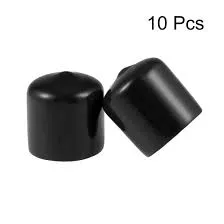Mobile:+86-311-808-126-83
Email:info@ydcastings.com
water pump casing
The Importance of Water Pump Casings in Modern Engineering
Water pumps are essential components in various sectors, including agriculture, industry, and municipal water systems. Among the many components that make up a water pump, the pump casing plays a critical role in ensuring the efficiency and longevity of the pump. This article explores the significance of water pump casings, their materials, design considerations, and maintenance.
Understanding Water Pump Casings
The casing of a water pump is essentially the outer shell that houses the pump's internal components, such as the impeller and volute. Its primary function is to provide structural support, contain the pumped fluid, and direct its flow. Typically made from durable materials such as cast iron, stainless steel, or polymer composites, the choice of material depends on the specific application and the type of fluid being handled.
Materials Used for Water Pump Casings
1. Cast Iron Widely used for its strength and durability, cast iron is a traditional material for pump casings. It offers excellent resistance to wear and corrosion, making it suitable for various applications, including wastewater and irrigation.
2. Stainless Steel Ideal for applications where hygiene and resistance to corrosion are paramount, stainless steel casings are common in the food processing, pharmaceutical, and chemical industries. They can withstand harsh environments and chemicals, maintaining their integrity over time.
3. Polymer Composites In recent years, composite materials have gained popularity for water pump casings. These lightweight options are resistant to corrosion and are particularly useful in applications where weight is a concern, such as in portable or submersible pumps.
Design Considerations
The design of a water pump casing is crucial for its performance. Several factors must be taken into account
1. Hydraulic Efficiency The casing must be designed to minimize turbulence and maximize flow efficiency. A well-designed volute, for instance, helps to convert kinetic energy from the impeller into pressure energy, ensuring the effective movement of water.
water pump casing

2. Heat Dissipation Water pumps can generate heat during operation. The casing must allow for adequate heat dissipation to prevent overheating, which could lead to failure. This is particularly important in applications involving high flow rates or high-temperature fluids.
3. Accessibility for Maintenance Designing the casing with accessibility in mind is crucial for maintenance. Casings that allow for easy access to internal components can reduce downtime and maintenance costs. This includes features such as removable covers and strategically placed openings.
4. Pressure Rating The casing must be designed to withstand the expected pressures during operation. Applications like deep well pumps require casings that can endure significant pressure from the water column above.
Maintenance and Longevity
Regular maintenance of water pump casings is vital to ensure their performance and longevity. A few key maintenance practices include
1. Regular Inspection Routine inspections can help identify signs of wear, corrosion, or leaks. Early detection of issues can prevent further damage and costly repairs.
2. Proper Lubrication Ensuring that moving parts are well-lubricated can minimize wear and extend the life of the casing as well as the internal components.
3. Cleaning Keeping the casing free from debris and buildup can enhance efficiency and prevent clogs that may cause the pump to work harder than necessary.
4. Material Protection Applying protective coatings or using sacrificial anodes can significantly extend the life of metal casings, especially in corrosive environments.
Conclusion
Water pump casings may often be overlooked, yet they are pivotal in ensuring the effective and efficient operation of pumps. The choice of material, design features, and adherence to maintenance routines directly influence the performance and longevity of the pump. As engineering continues to evolve and adapt to new challenges, the innovation in materials and design philosophies will play a significant role in enhancing the reliability and efficiency of water pump systems worldwide. Understanding the critical role of pump casings is essential for engineers, technicians, and operators alike, enabling them to make informed choices that ultimately lead to sustainable water management solutions.
-
Why Should You Invest in Superior Pump Castings for Your Equipment?NewsJun.09,2025
-
Unlock Performance Potential with Stainless Impellers and Aluminum End CapsNewsJun.09,2025
-
Revolutionize Your Machinery with Superior Cast Iron and Aluminum ComponentsNewsJun.09,2025
-
Revolutionize Fluid Dynamics with Premium Pump ComponentsNewsJun.09,2025
-
Optimizing Industrial Systems with Essential Valve ComponentsNewsJun.09,2025
-
Elevate Grid Efficiency with High-Precision Power CastingsNewsJun.09,2025











